

Potty Talk
Copyright Laura Morley 2013
ISBN 978-0-473-25244-1
The right of Laura Morley to be identified as the author of this work in terms of section 96 of the Copyright Act 1994 is hereby asserted.
All rights reserved. Without limiting the rights under copyright reserved above,
no part of this publication may be reproduced, stored in or introduced into a retrieval system, or transmitted, in any form or by any means (electronic, mechanical, photocopying, recording or otherwise), without the prior written permission of both the copyright owner and the above publisher of this book.
This toilet training guide is designed to give parents and caregivers some useful tips and ideas. It is not to replace expert advice from medical or behavioural specialists. It is recommended that you seek advice from qualified practitioners if you are concerned in any way.
Published by Toddler Talk, 2013
www.toddlertalk.co.nz
Design, layout, photography and illustration:
Katharine Hindson - Titanium Design Ltd, www.titanium.net.nz
Cover photography and stock images: iStock Photo
Printed in New Zealand by PMP Print
Ordering for retailers or individuals, please contact Toddler Talk, via www.toddlertalk.co.nz

Do you remember learning to drive a car?
Carefully co-ordinating your hands and feet at the right time to complete multiple manoeuvres while keeping up with other traffic on the road; the anxiety around not making mistakes, trying to remember everything and not crash!
At first you had to think about each move: changing gears, moving pedals, using mirrors. Then over time, as you got better, it became easier. Amongst your peers some were more motivated than others to learn to drive, and some took a long time to master the skills.
You can draw many parallels with toilet training. At first children learn each step and practise it, then one day it becomes automatic. But for each child that 'one day' is different.
This manual helps busy parents and caregivers negotiate children through the toilet-training process. It is designed around traffic lights - ready, set, go - with three different speeds of toilet training likened to the gears of the car.
For some children, transitioning from using a nappy to a toilet is an easy one. Many children decide themselves that they want to discard their nappy and use the toilet from that day forth.
The majority of children need help to learn the skills involved in using the toilet. For many families this is a big milestone that involves mistakes and mess. Reminding your child that going to the toilet is just a part of everyday life helps them - and us as adults - keep toilet training in perspective. Rather than seeing it as a mountain to be conquered, it is rather a bridge to be crossed. It is another step in a child's journey to independence.
Just as with any other skills that kids learn there are tools and strategies that make it easier.
Toilet training involves two elements
1. The child's physical readiness and ability
2. Their behavioural readiness and motivation
When a child is physically ready and motivated to toilet train this is the optimum 'soil' for the skills to grow.
Parenting in the 21st Century
When were you toilet trained as a child?
Society and lifestyle is constantly changing and evolving. Many families with young children are very mobile. It is common for families to have both parents working either full or part time outside of the home. Children are often cared for by different adults in a day. Many spend most of their time outside of the family home in structured and unstructured programmes. Many families have homes with new carpet and furniture, which creates tension around having toileting 'accidents'.
Children who wear cloth nappies full time are often faster to toilet train. However, a majority of babies and toddlers are in disposable rather than cloth nappies. The improved technology with disposable nappies means babies and toddlers are not experiencing the feeling of wet next to their skin.
Many parents are holding off toilet training their toddlers, choosing instead to wait until their child is three before starting toilet training. For some children, this means toilet training is faster because they are more aware of their body signals and are able to be more independent in using the toilet.
For other children, it means that the habit of using a nappy takes time to break and they resist this change. If we look from their perspective, the child has been put in nappies and given the message that they can wee and poo whenever and wherever they like. Then after several years, they are told this is not okay any more, they must now use the toilet or potty. Changing this habit can take days, weeks or months.
Readiness for toilet training is not an age but rather a stage. A child does not need to display all of the signs of readiness before starting but the more ticks in the boxes the easier it is:
 they are dry for extended periods of time approximately two hours. This often includes waking up dry from an afternoon sleep. The best way to tell is to let them run around with no nappies for several hours and see how often they wee.
they are dry for extended periods of time approximately two hours. This often includes waking up dry from an afternoon sleep. The best way to tell is to let them run around with no nappies for several hours and see how often they wee.
 they show an interest in the toilet and others using it.
they show an interest in the toilet and others using it.
 they can pull up and push down pants.
they can pull up and push down pants.
 they can use toilet training language.
they can use toilet training language.
 they may stop, pause and even hold themselves during a bowel movement. Many children take themselves off to a quiet spot.
they may stop, pause and even hold themselves during a bowel movement. Many children take themselves off to a quiet spot.
 they can follow instructions.
they can follow instructions.
 they are in a normal routine where there are no major changes, i.e. new baby, visiting family, renovations, moving house etc.
they are in a normal routine where there are no major changes, i.e. new baby, visiting family, renovations, moving house etc.
Parent Questionaire, I am ready when:
 there is no other major new thing happening in my life, i.e. moving house, starting new job, renovating, undergoing relationship tension, having a new baby.
there is no other major new thing happening in my life, i.e. moving house, starting new job, renovating, undergoing relationship tension, having a new baby.
 I am in a positive emotional space with support from others.
I am in a positive emotional space with support from others.
Toilet Training Ladder
Toilet training is a series of skills that need to be mastered. You may be surprised that your child has already been practising these skills outside of the context of toilet training, such as washing their hands and getting undressed. Put a tick beside the things they can already do.
 Stay clean and dry
Stay clean and dry
 Go without help
Go without help

Next page
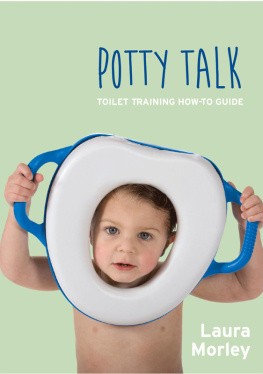

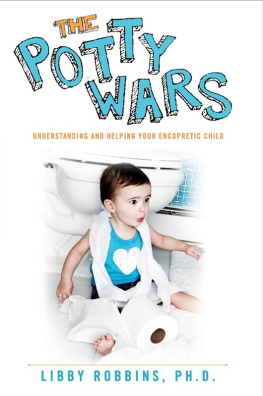
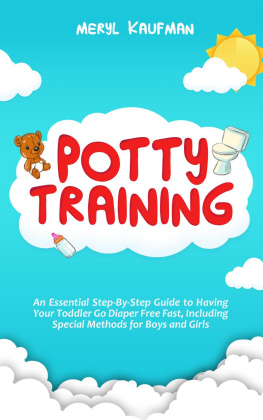
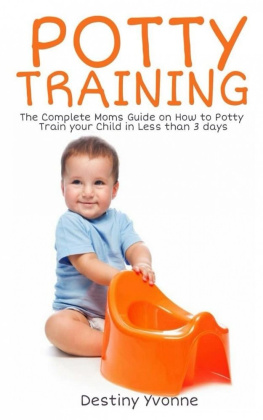
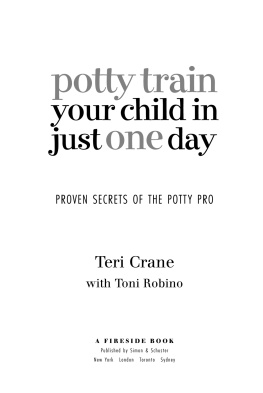
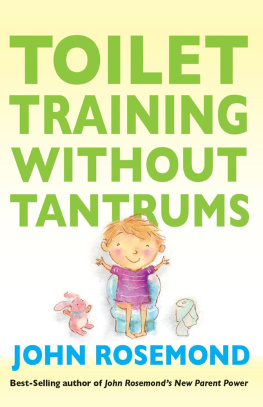
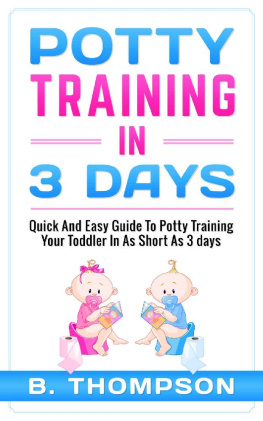



 they are dry for extended periods of time approximately two hours. This often includes waking up dry from an afternoon sleep. The best way to tell is to let them run around with no nappies for several hours and see how often they wee.
they are dry for extended periods of time approximately two hours. This often includes waking up dry from an afternoon sleep. The best way to tell is to let them run around with no nappies for several hours and see how often they wee.